Sound of Charlotte Blog
Amy Orsinger Whitehead Lends a Healing Hand
April 13, 2022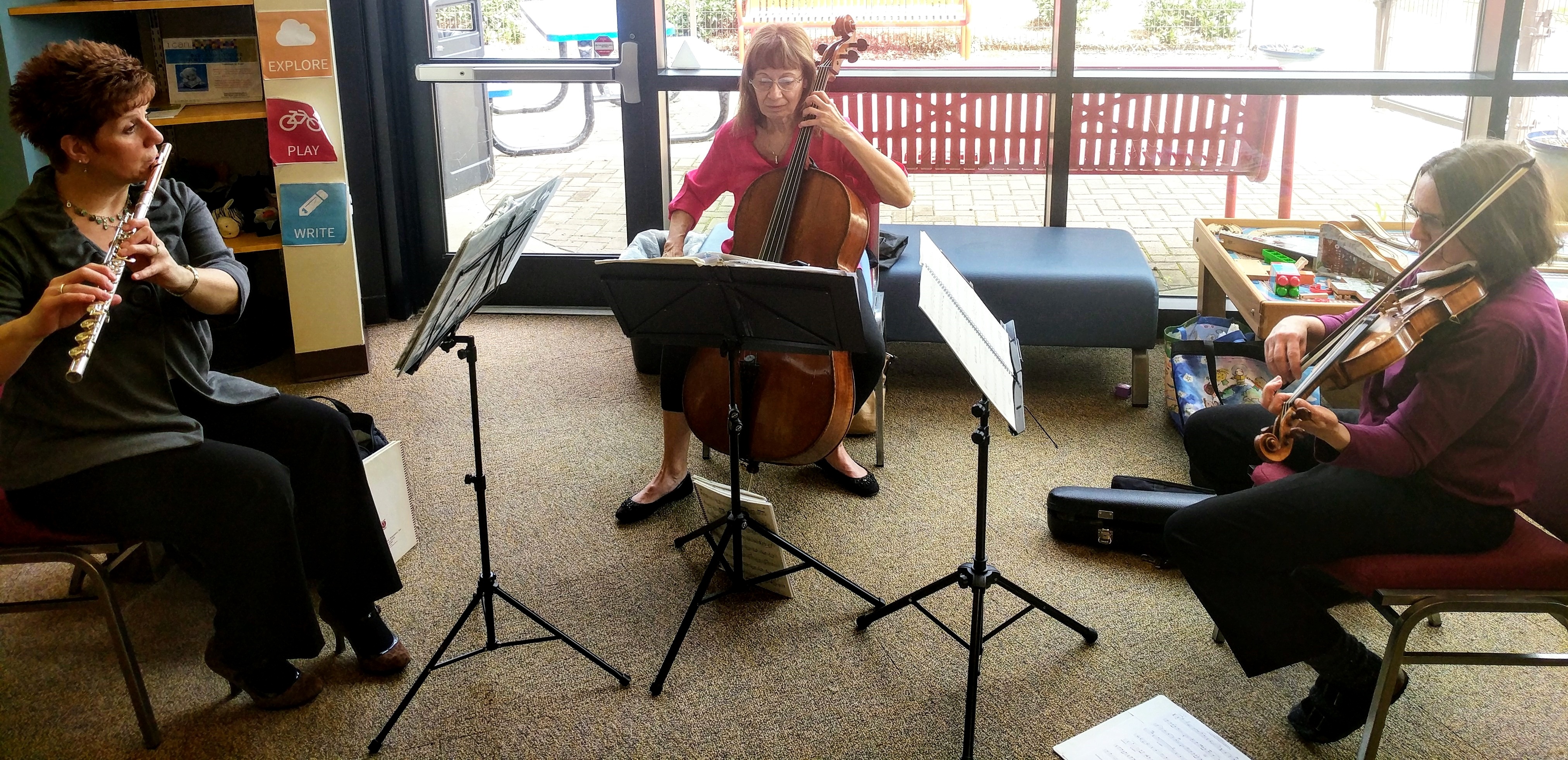
For over 20 years the Charlotte Symphony's Healing Hands program has sent musicians to perform in area hospitals, libraries, senior care centers, and shelters for people experiencing homelessness. Since the program's inception, CSO Flutist Amy Orsinger Whitehead, violinist Elizabeth Pistolesi, and cellist Deborah Kauffman Mishoe -- named The Laurel Trio -- have been using their music to enrich the lives of patients, residents, and community members throughout Charlotte. We recently caught up with Amy to discuss what makes this program so unique and special.
Why is the Healing Hands program so important to you?
Our trio has done lots and lots of Healing Hands performances throughout the years taking our music on the road to wherever the need exists. I think it's very important to meet people where they are because some get to a certain point where they're not able to come to the concert hall to hear us play. If we are able to take ourselves to where people live and give them the gift of beautiful music something they've enjoyed all their lives it's a privilege for us. I think, honestly, that we get as much out of it as the people we perform for. It's really a lot of fun and it's quite meaningful for us because we enjoy being able to make a little bit of a difference in someone's day with our music.
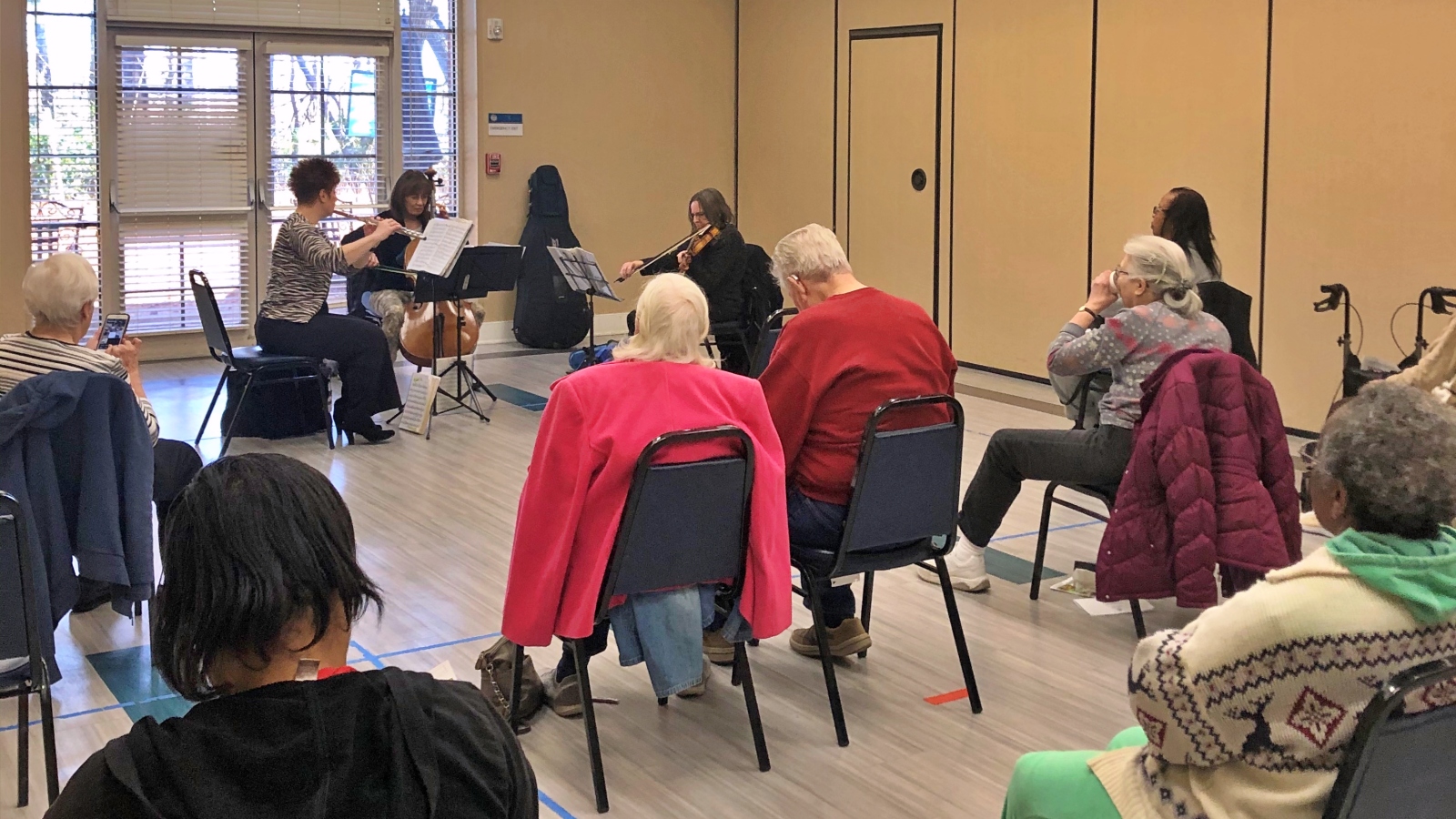
How does the audience respond to your performances?
This has been quite powerful for us. In a situation where we're playing in a dementia setting, you might see a resident that doesn't seem to be responding to anything around them, but you'll see them react and respond to the music and even start singing along! We have a Motown medley that has inspired a lot of spontaneous dance parties, too! The music reaches deep inside people and has an impact that might not be easily achieved outside of music, and that is just so incredible. It's actually pretty hard to play the flute when you feel like you're getting choked up or teary-eyed, and so it can be a bit hard for me, I have to tell myself not to get swept away by the emotion of it. Seeing the immediate impact that we're having to think that we're making even the tiniest difference for people is really wonderful, and we feel so fortunate to get to have that experience.
Your trio performs a lot at senior care facilities and senior centers, but you've also performed at Moore Place, a supportive housing residence for chronically unhoused adults.
Yes, we have! It's a whole different age range than we usually play for, and we love to hear them tell us about their stories and musical connections the songs they remember and the instruments they played in school. Music can help ground us to where we are currently, moment by moment, but it has such a great way to take us back to a previous time in our lives. It's pretty incredible when we get to see this happening and experience the music the way the people listening are experiencing it. It's nice to relive people's memories with them.
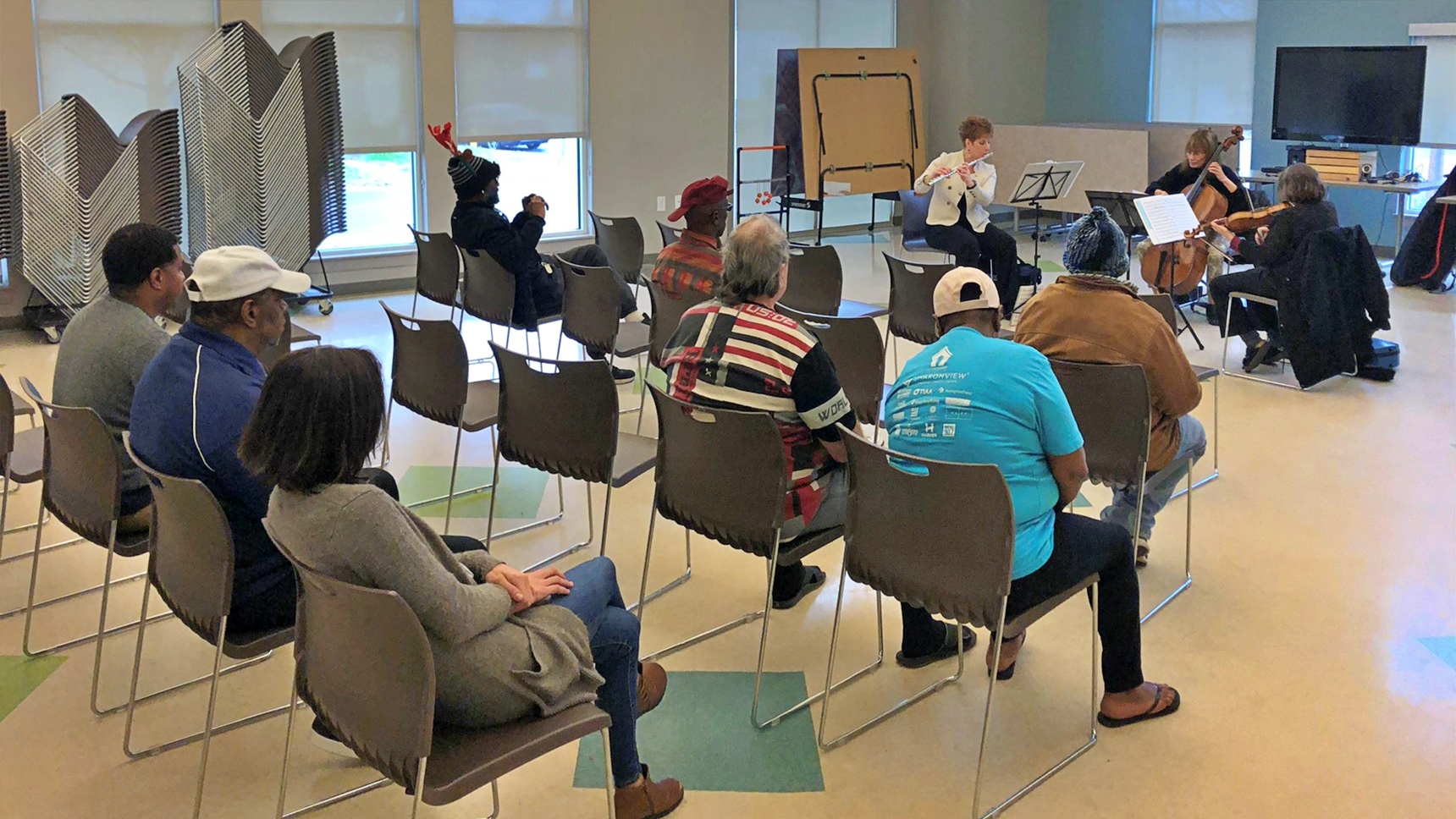
How was the program able to adapt during the pandemic?
We were able to pre-record two programs, one holiday program and another non-holiday program for people of all ages. We provided online performances where the video was played and each one of us would announce the next piece live. It was a really great mix of technology and heartfelt love between all of us! We loved being able to interact with the people who were zooming in and we always had a really fun chat thread during the performance. People were really needing something like this in their lives at that moment. And to be able to have a holiday concert in December, when we were so closed off from each other for so long was extra meaningful.
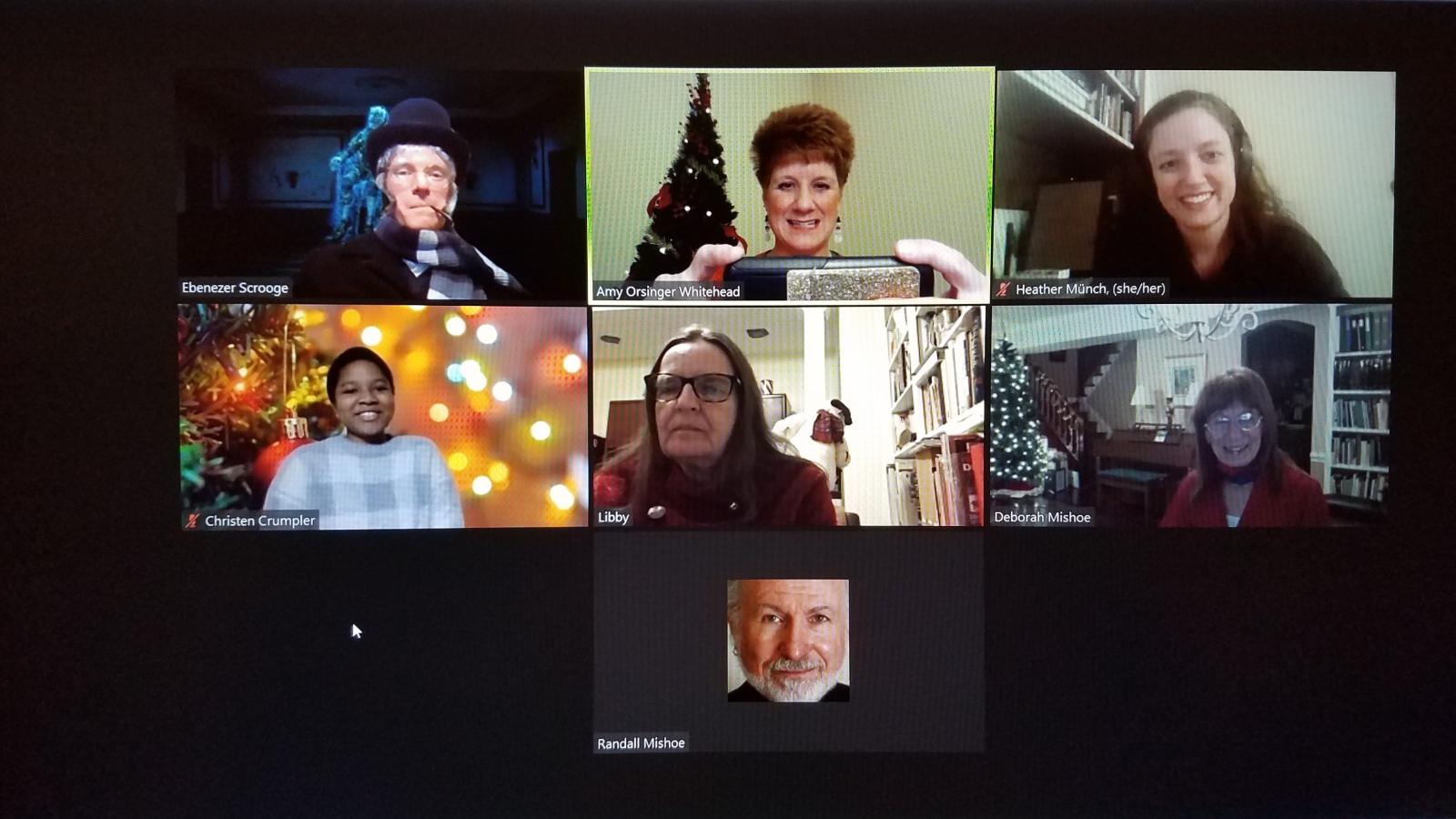
Do you have a favorite memory from a Healing Hands performance?
I think my favorite moment ever was when we were playing at a senior living facility called Renaissance West. That's the place where they have been known to break into spontaneous dance parties and they love to sing along! One time, during a holiday concert, I could see a lady moving from person to person and I could tell she was on a mission to get everyone in the room to do something. We didn't think much of it, but at the end of the concert they brought up to us a Christmas card that they had all signed. It was just so sweet, and I carry that with me in my folder because it's such a special memory. That was such a great day, I can't think of it without smiling.
Learn more about the Charlotte Symphony's Healing Hands Program. Read more
Alan Black on Stepping Back with Grace
March 16, 2022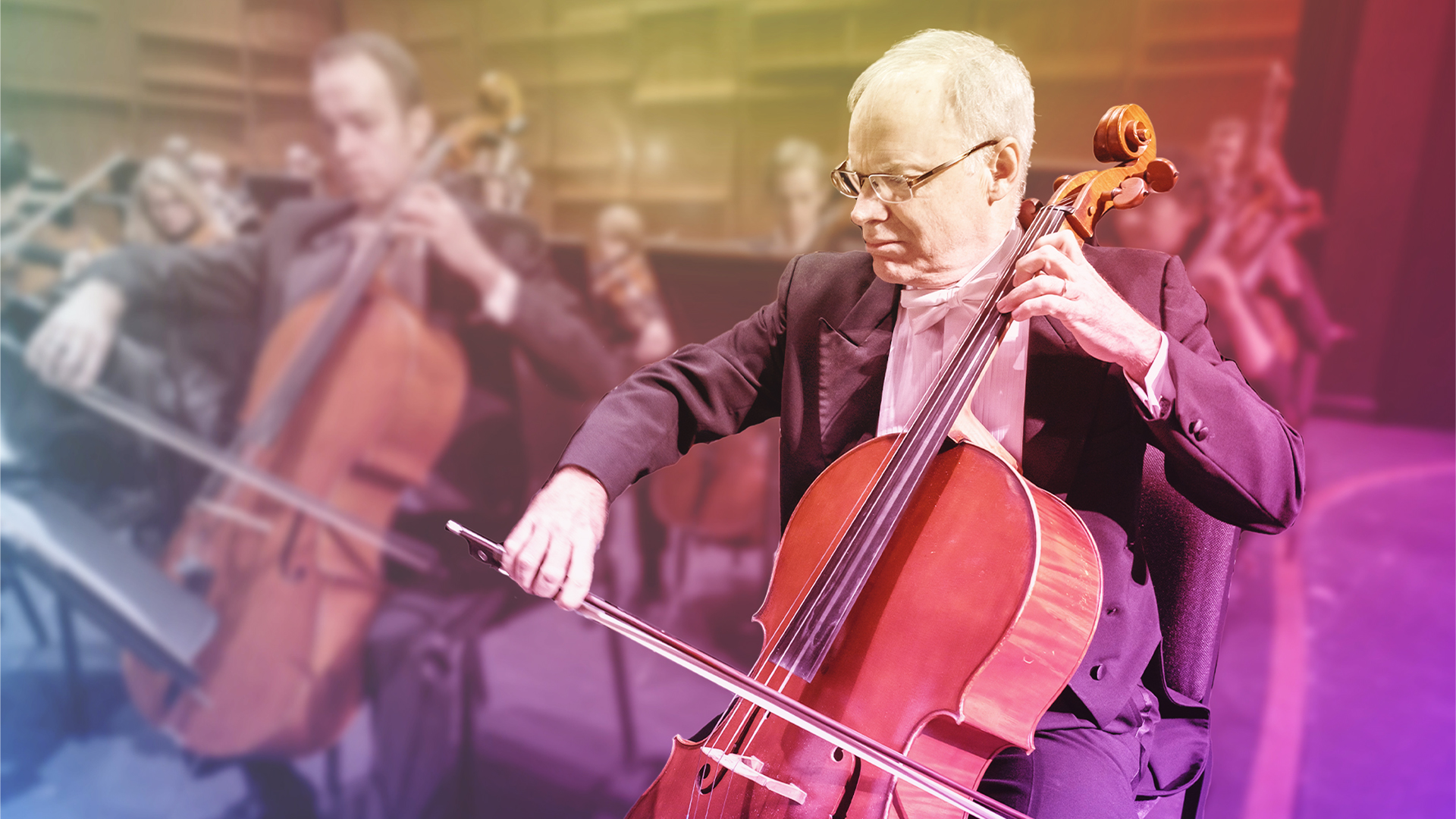
A fixture of the Charlotte Symphony since 1986, Principal Cellist Alan Black is stepping back from his role of leading the cellists to continue playing in the section. Black will be ending his tenure on a high note at the end of our 2021-22 season, having played the solo in John Corigliano's Symphony No. 1 and capping off with his feature in the Music & Healing concert at Queens University on April 3. We talked with Alan about his decision to step back now, his favorite memory with the CSO, and his hopes for the section as he ends his tenure as Principal Cellist and begins the 2022-23 season as Principal Cello Emeritis.
Why have you decided to step back into the section at this time?
Well you know, I've been thinking about this for a couple years. I'm going to be 65 in a month and I'm thinking to myself, well, what else do I need to accomplish as a principal player? I've done all the solos....my colleagues are great cellists and I feel the talent level has risen. They're great players and so it's time for somebody else to do it. And the stress of sitting principal is actually fairly strong.... I want to enjoy playing without the stress of the job. And since I've done basically everything I've wanted to do and checked off all those boxes, I feel like it's kind of time for me to let somebody else take over the mantle; let somebody younger come on in and provide a fresh vision.
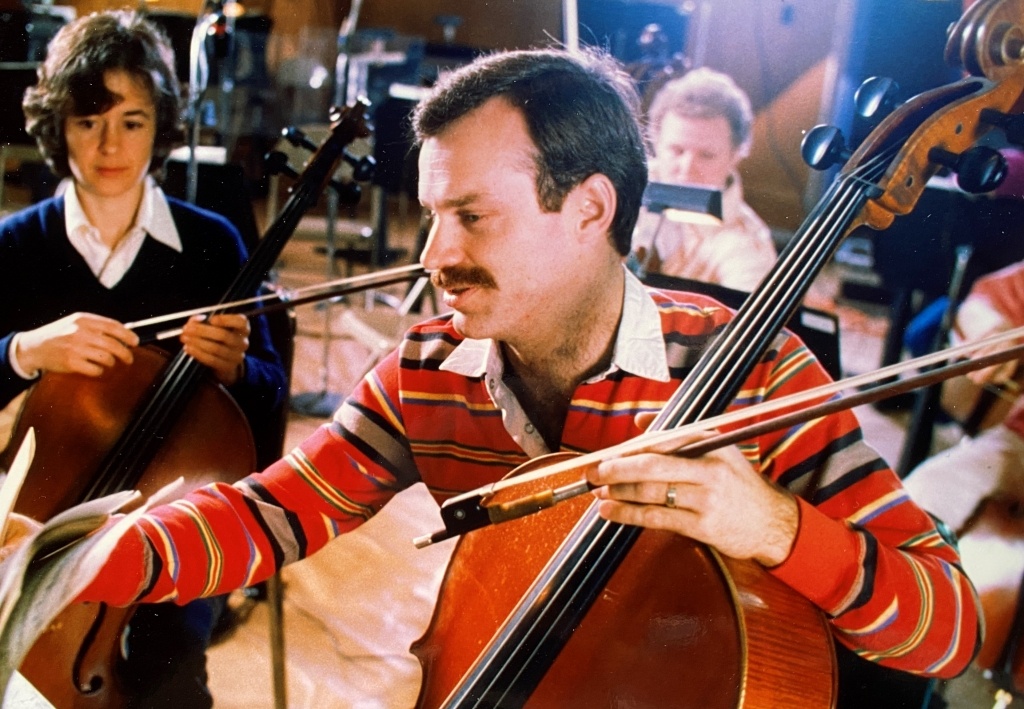
How have the other players reacted to your decision?
I think a lot of them were surprised, which makes me feel good because they were like, "Wait a minute, what? Why are you doing that?" A lot of them didn't realize I was going to be 65 and that makes me feel good....I think my cello colleagues were surprised and they've been very gracious about it.
After so many years as Principal, you must have some great memories.
Oh, yes! The highlight of my career was in 2000 when Yo-Yo Ma was in town performing with us and I got to play the Vivaldi Concerto for Two Cellos with him. Aside from being the most visible and famous musician on the planet, he is also an amazing human being -- warm, engaging, and filled with humility. We had a great time together and hung out at the after-party on the 60th floor of the Bank of America center. I had a great time and will never forget this moment. Ultimately, it was because of this concert that five years later I was able to purchase the cello I bought from him. In many ways, he has been the most influential person in my musical life, and I am filled with gratitude for this.
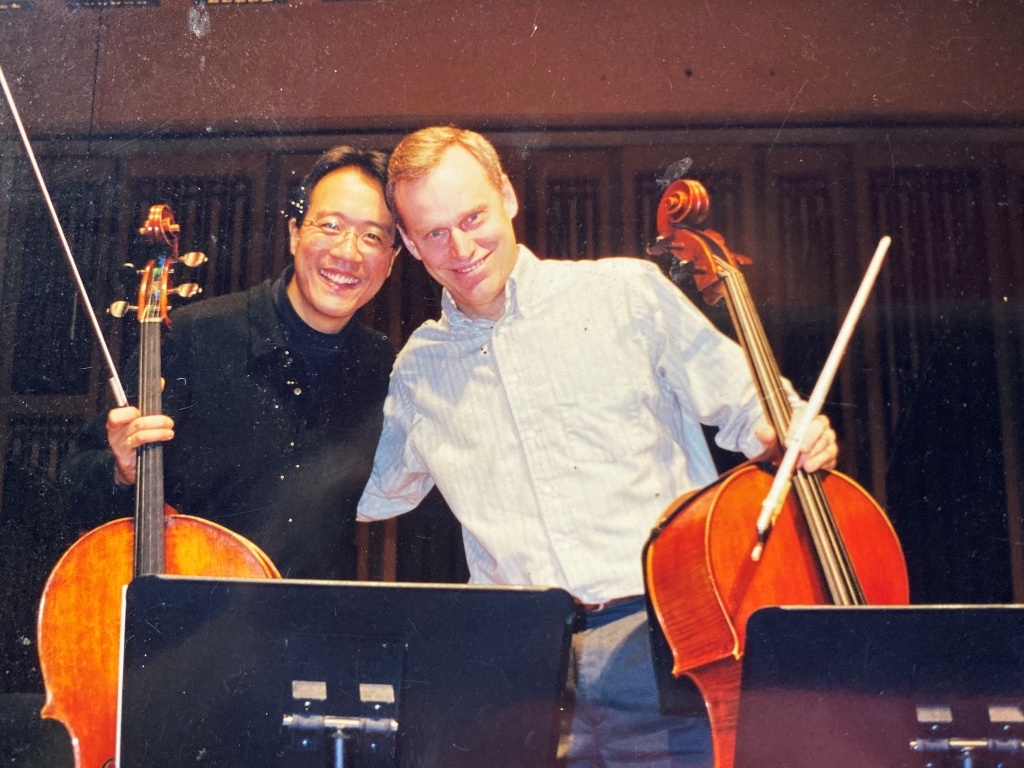
Do you have any words of wisdom for your successor?
I felt like as a principal the most important thing I could do is manage the section in a way that creates a great working atmosphere; a collegiality within the section. That's been my most important goal for the last twenty years, that I want us to all get along and be happy together....To me, the most important thing is that you've got to treat your colleagues with respect and you've got to treat them right.
What are your hopes for the cello section, and the CSO as a whole, for the coming years?
I hope we can continue to have great dialogue with our management and the board; that we continue to work as a team the way we did during COVID. These have been the best two years of my entire career in terms of our working relationship....it's been great and that's what we should have. We should have a great working relationship: between the players, the management, and the board. We need to do that....and I'm really hopeful for that going forward.
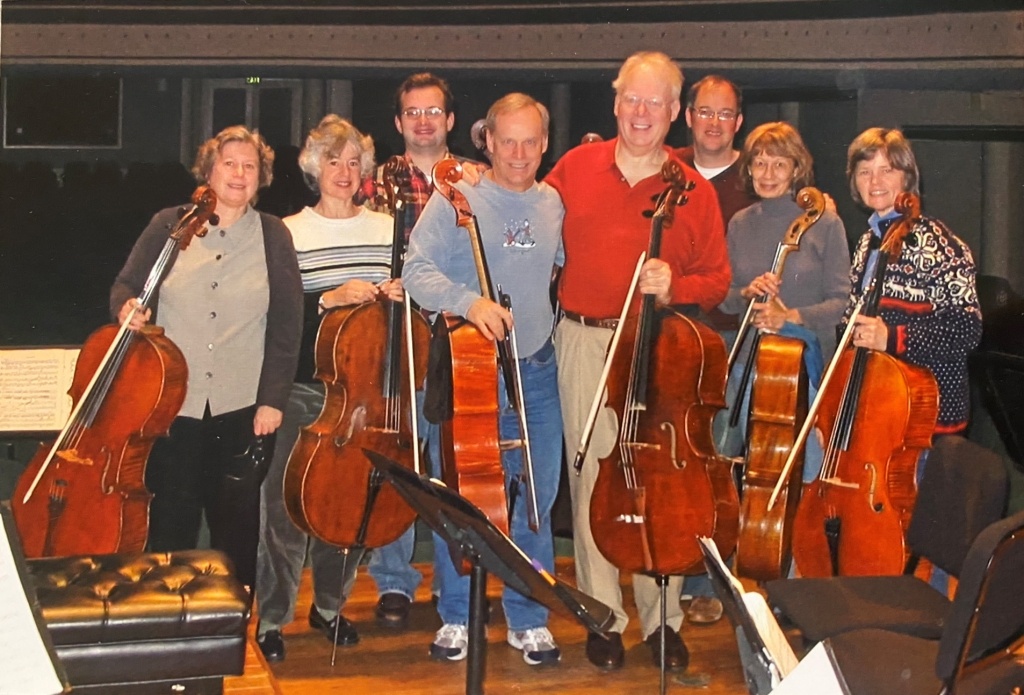
What can you tell us about your part in Music and Healing?
Two years ago I commissioned Leonard Mark Lewis to write [I Will Wade Out] for cello and piano, and we played it at Davidson [College] when I was on faculty there. And I really loved that piece. So I was thinking about what I wanted to do -- because I want to go out strong, like "Yeah, I'm making this decision. I don't have to, but I am because I just want to go out on a high note." And I thought, "You know, the perfect thing to do was play Mark's piece," because Mark and I are very close friends. I really like it, and it will give him a chance as a local composer to be showcased and to have another orchestral piece out there. So I'm really excited about us being able to do that. We've done a lot of tinkering with it since we played it two years ago. So it's been really neat to sort of reconnect with it and find more things that are amazing about it. So yeah, it's going to be fun. I'm really excited about it and it's a new venue that we've never played in, so I think it will be a really nice addition to the program.
Is there anything you'd like to say to the audiences who have been with you for so many years?
I want to say thank you to everyone, it's been such an honor to be Principal Cellist of the Charlotte Symphony. It's been an absolute joy!
Join us at Queens University for Alan's final solo performance as Principal Cellist of the Charlotte Symphony.
Read more
Meet the Charlotte Symphony’s Newest Musicians, Part I
September 8, 2021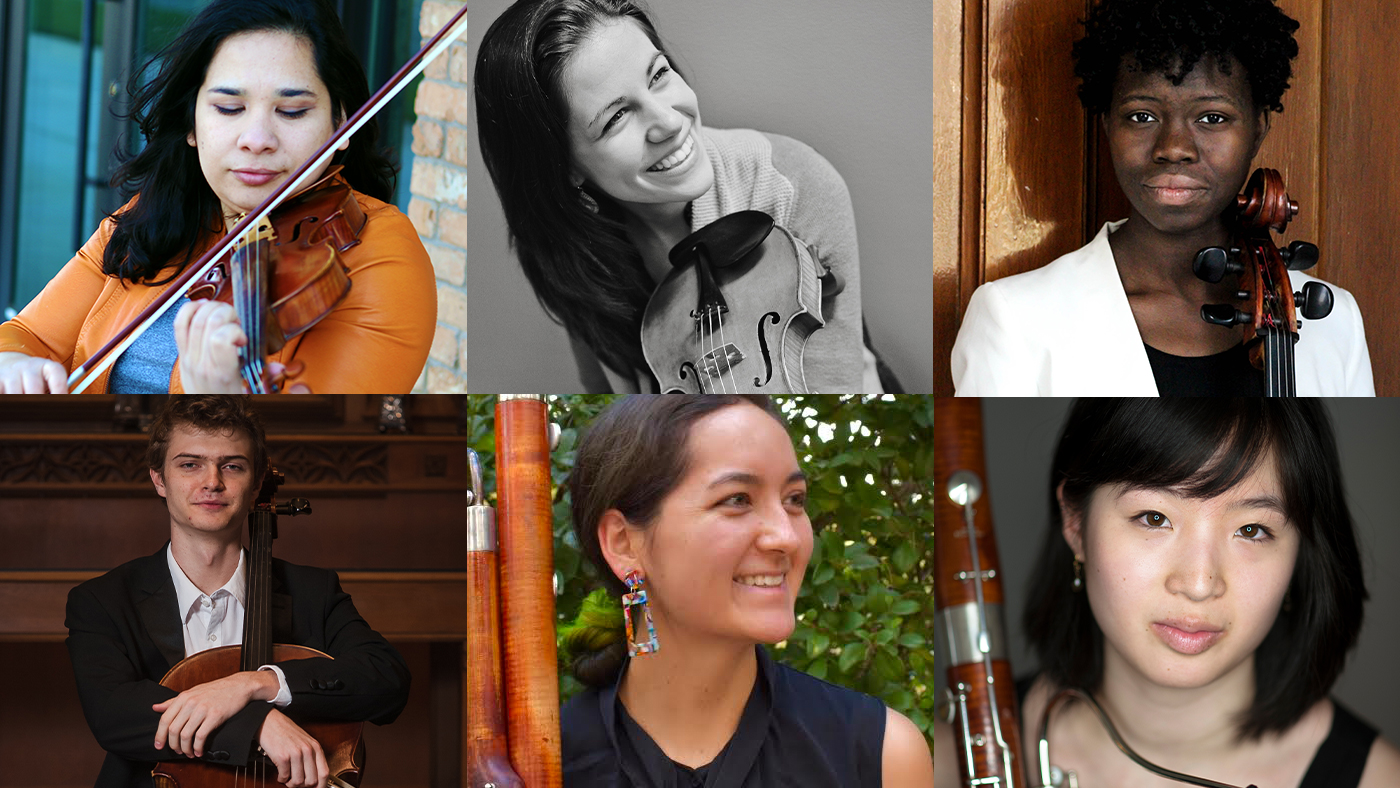
Drew Dansby, Acting Section Cello
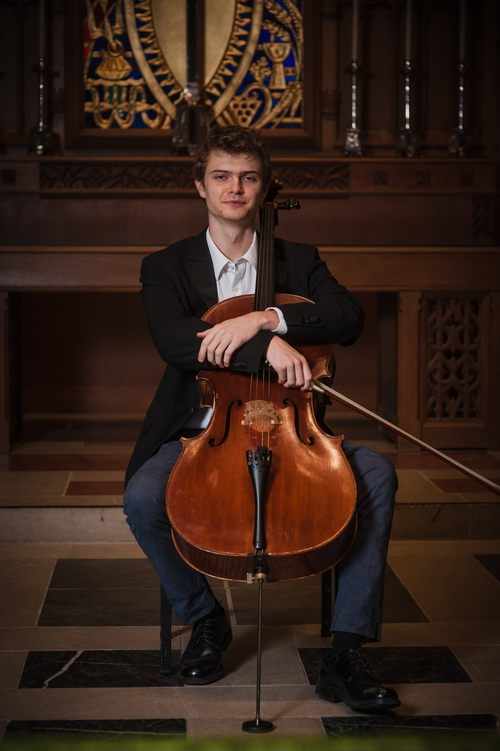 |
How were you introduced to music and the cello? My parents, neither of whom played an instrument, started me on violin lessons on my fourth birthday after I begged them to start playing when I saw a violinist perform at our church. Six months later, I saw another student having a cello lesson before me, and I begged my parents again to add cello. My teacher rented us both instruments and split my lesson time into half violin and half cello. I continue to play both instruments to this day! What do you look forward to most about living and working in Charlotte? I'm really looking forward to spending a year in my hometown with family very close, and exploring more of this constantly changing city. |
What do you do for fun when you're not performing/practicing?
I'm an avid reader, and I also love spending time in nature, doing Sudoku puzzles, volunteering for Crisis Text Line, and continuing my quest to find the best chicken and waffles in Charlotte.
>> Learn more about Drew
Leah Latorraca, Acting Section First Violin
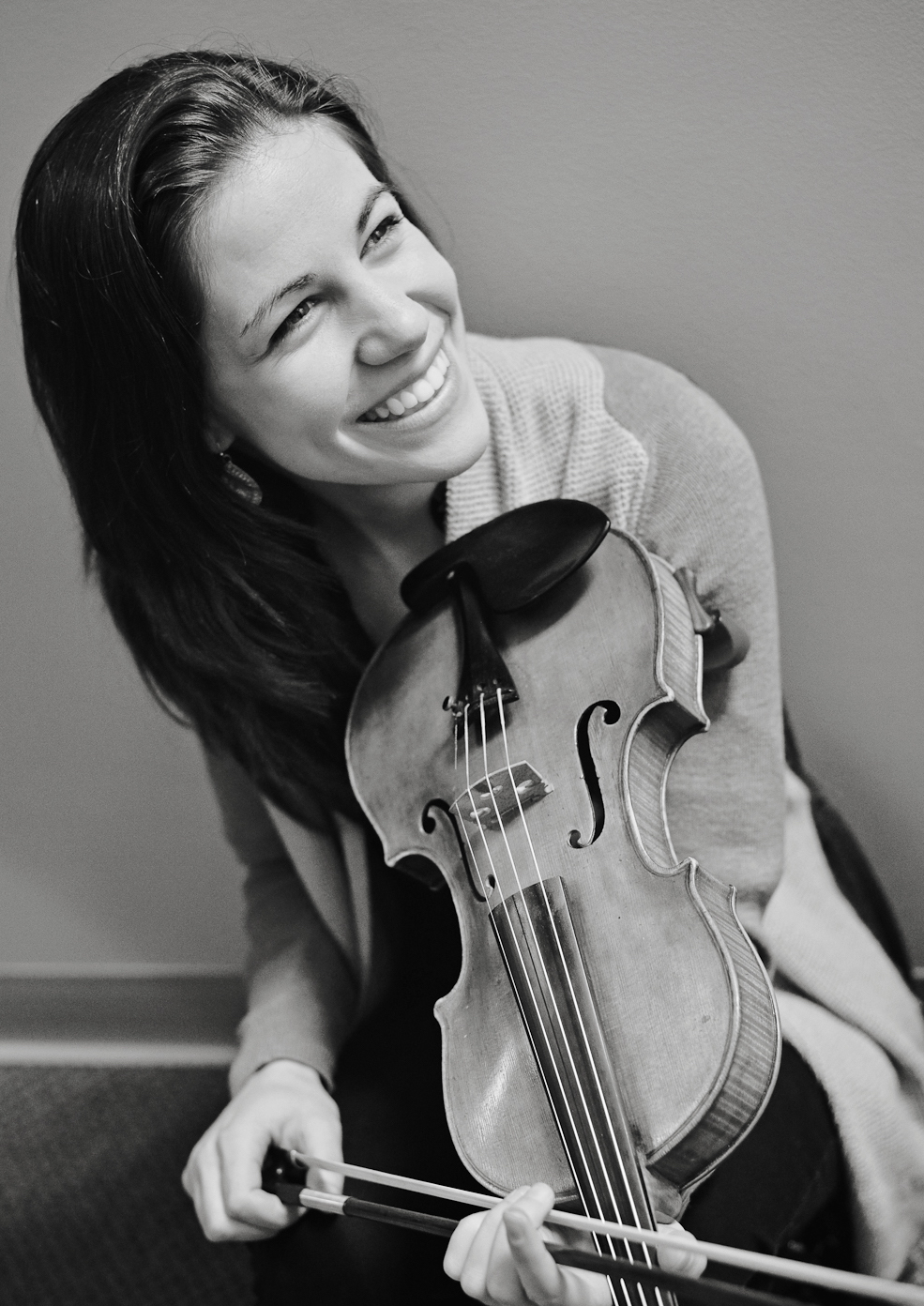 |
Where were you born? I was born and raised in Madison, Wisconsin. How were you introduced to music and the violin? I started playing violin when I was four. My older sister had started taking violin lessons, and naturally, I wanted to copy everything that she was doing! What do you look forward to most about living and working in Charlotte? I am looking forward to meeting and playing with a new group of wonderful colleagues. Outside of work, I am excited to explore Charlotte and see what North Carolina has to offer! |
Outside of violin, I enjoy running, baking, traveling, and hanging out with friends!
>> Learn more about Leah
Margaret O'Leary, Acting Section Bassoon
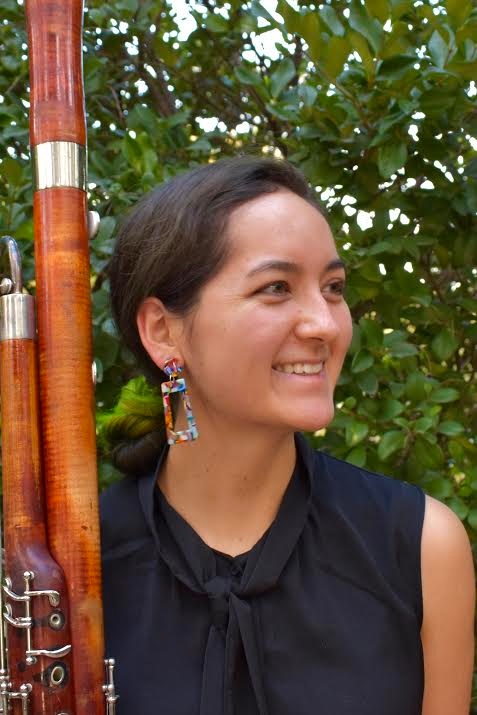 |
How were you introduced to music and the bassoon? When I was in fourth grade I started guitar lessons because I wanted to be in a rock band. However, practicing took way more discipline than I expected and after a year or so I gave up. In middle school I decided to give playing music another try and joined the school band program on the clarinet. A few months later I went to a Boston Pops concert, which was my first time ever seeing or hearing a bassoon. I was intrigued by how many keys it had, and liked the way it sounded. I doubled on clarinet and bassoon for about a year before deciding I wanted to focus on bassoon. |
I'm looking forward to trying new restaurants and visiting Charlotte's museums, but I am most excited just to be playing in an orchestra again. Like most musicians, I haven't had many chances to play with other people over the past year and a half, so I really can't wait to perform more regularly. I feel lucky to be a part of this community; everyone in the orchestra has been very warm and welcoming, and I can't wait to make music with everybody!
What do you do for fun when you're not performing/practicing?
I really like to read, and I'm lucky to live just a short walk away from a branch of the Charlotte Public Library. One new hobby I have picked up recently is playing chess. I'm slowly studying up on strategies, but I also enjoy just playing for fun and seeing what happens.
>> Learn more about Margaret
Alice Silva, Acting Section Violin
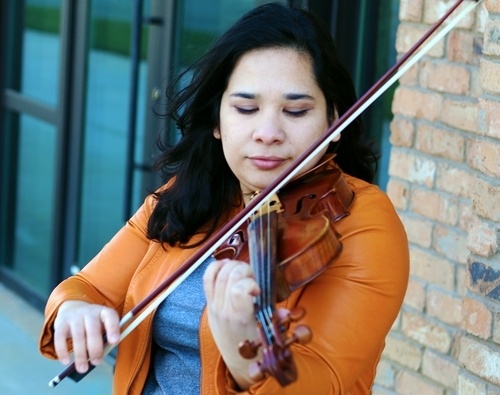 |
Where were you born? I was born and raised in Fortaleza Brazil and came to the U.S. in 2007 to go to college. How were you introduced to music and the violin? I was introduced to music and the violin in my hometown through an afterschool program for underprivileged children. |
Performing is my fun! Besides the symphony, I love playing Broadway shows, operas, weddings, Christmas concerts, chamber music, and in new music ensembles. But I also like to hang out with friends, discover different coffee shops in town, and travel when I can. I am a licensed Realtor in NC and SC and I am also a reservist in the U.S. Army. I am very excited to join CSO for the season!
>> Learn more about Alice
Denielle Wilson, Acting Section Cello
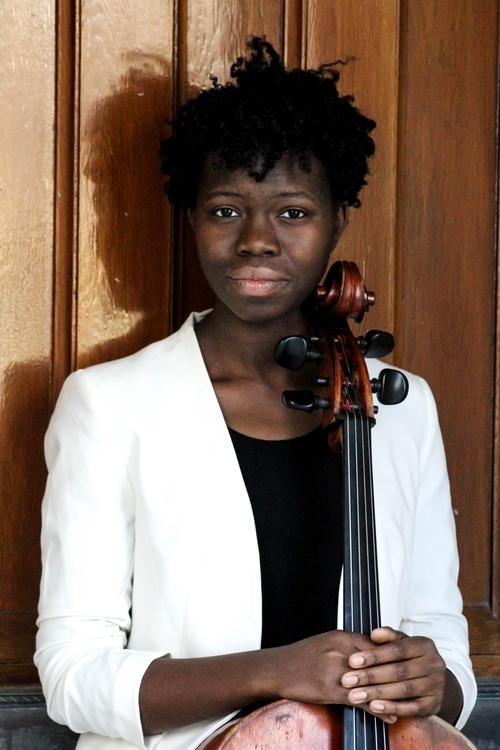 |
How were you introduced to music and the cello? I was primarily introduced to music at church. My father loves singing, and started me and my siblings on piano lessons when we turned five years old. The classical station was often our radio listening of choice, and by the time I was ten, my dad started taking me to cello lessons. What do you look forward to most about living and working in Charlotte? I look forward to getting to know the outdoor beauty of Charlotte, making new friends, and growing more familiar with the feelings of playing in an orchestra full-time. I am hoping to find at least one good vegan/vegetarian Caribbean restaurant. |
I enjoy eating out, listening to music, reading, and having long telephone conversations with my siblings. An occasional visit to the movie theater is also nice.
>> Learn more about Denielle
Naho Zhu, Acting Section Bassoon
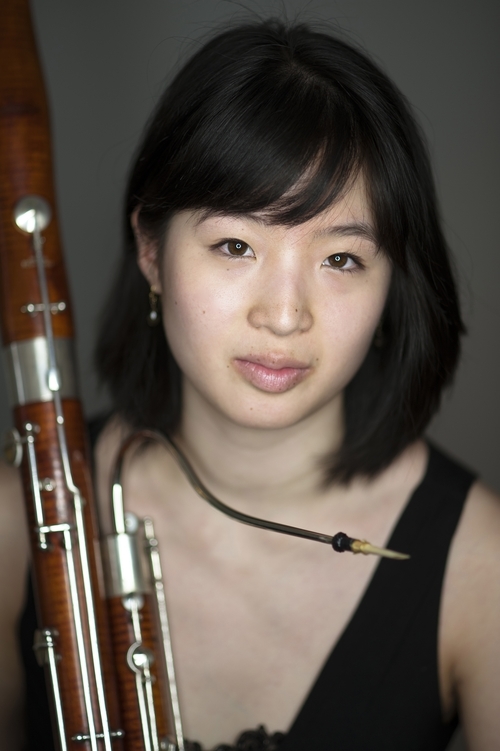 |
Where were you born? I was born in Kyoto, Japan, where I lived until I was 7 years old. After that we moved to Massachusetts, where my parents still live. How were you introduced to music and the bassoon? My mom had me start piano lessons when I was three years old and, apparently, I fell asleep at my first lesson. The bassoon was something I became interested in after I joined the middle school band on the flute. We were working on a piece that had several measures of silence where a bassoon solo was supposed to be but we had no bassoonist at the time, so I volunteered to play it! |
I got a pandemic puppy last year, so I'm excited to explore parks and walking trails around Charlotte with him! Coming from Boston, I'm also looking forward to warmer weather, especially during the winter.
What would like the audience to know about you?
That I'm so grateful for their passion and interest in music! As much time as we spend practicing by ourselves, what really gives our work meaning is the fact that we have people in the audience who are receptive to it, and who hopefully each take away something personal from the collective experience.
>> Learn more about Naho Read more
Clarinetist Allan Rosenfeld’s Top 10 Orchestral Bass Clarinet Solos
January 13, 2021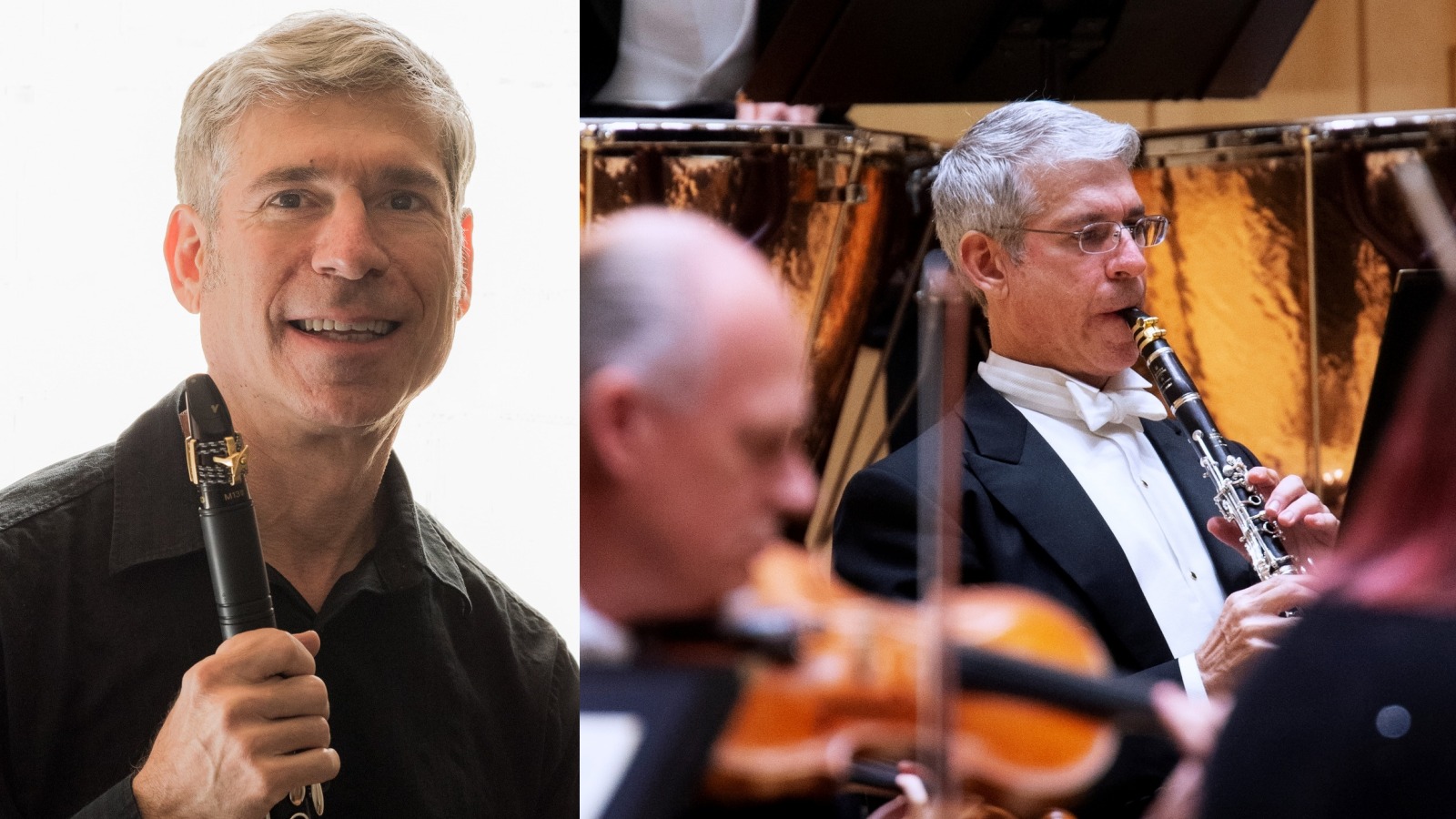
In a previous blog post, I featured a list of my favorite orchestral clarinet solos. While a significant amount of my in the orchestra is spent playing the clarinet, there are many occasions when you can also catch me at CSO concerts performing on the bass clarinet. The bass clarinet is often featured for its ability to fortify and color the woodwind section. Nevertheless, there are some spectacular passages that spotlight the appeal of this magnificent instrument as a solo instrument in its own right.
Here are my Top 10 Orchestral Bass Clarinet Solos:
10) William Schuman's Symphony No. 3 (Part II, Toccata)
9) Gershwin's Concerto in F (Second movement)
8) Tchaikovsky's The Nutcracker (Dance of the Sugar Plum Fairy, middle of Pas de Deux)
7) Shostakovich's Symphony No. 8 (Fifth movement)
6) Wagner's Tristan und Isolde (Act II, scene 3)
5) Wagner's Die Walkure (Act II, scene 2; Act III, scene 3)
4) Stravinsky's Rite of Spring (Opening)
3) Tchaikovsky's Manfred Symphony (First movement)
2) Mahler's Symphony No. 6 (First movement)
1) Khachaturian's Piano Concerto
The Classical Series: Reimagined
January 6, 2021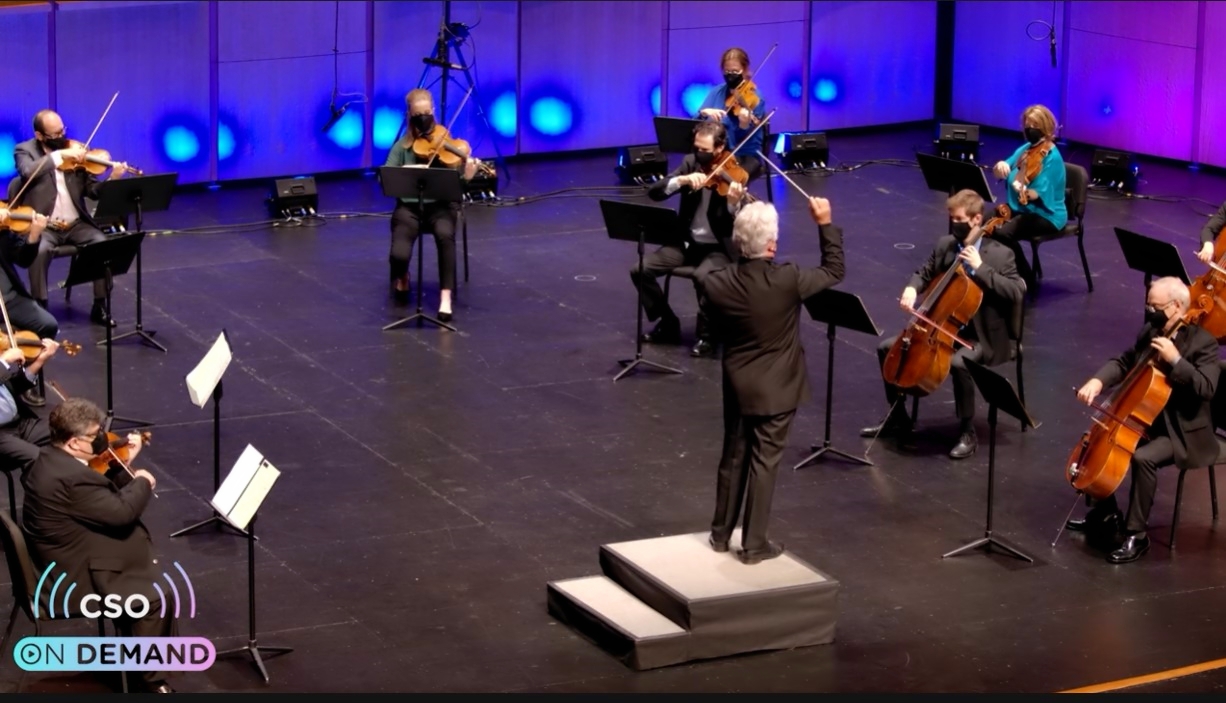
Your Charlotte Symphony's virtual concerts have already been viewed by thousands of people and received widespread acclaim, with a critic from Classical Voice North Carolina observing that, "the Charlotte Symphony's [virtual concert series] demonstrates the persistence and resilience of the arts and artists and the organization's commitment to its musicians, as well as its listening community."
We're reimagining what it means to serve as your orchestra during the pandemic, and it's been thrilling to find new and innovative ways to bring the music directly to you and your families.
But we're just getting started! The New Year brings four new virtual concerts.
Highlights include:
- The return of Music Director Christopher Warren-Green conducting works by Elgar, Holst, Mozart, and more.
- The continuation of our celebration of Beethoven 250 with performances of his First and Seventh Symphonies.
- Concertmaster Calin Ovidiu Lupanu and Principal Trumpet Alex Wilborn take center stage for concerti by Mendelssohn and Hummel, respectively.
- Contemporary works by Jessie Montgomery and Leonardo Balada, led by Resident Conductor Christopher James Lees.
We're Here to Help
We want you to make sure that everything is working for you once you're settled in to watch our concerts. Please check out this blog post for information on how to access the CSO's virtual concerts. We also have step-by-step instructions for how to stream the concert from a variety of devices, including your computer, phone, or smart TV.If you would prefer to speak to someone, please contact Patron Services at 704.972.2000 or ticketoffice@charlottesymphony.org.
Read more
What I have learned (and am learning) as a professional musician
December 22, 2020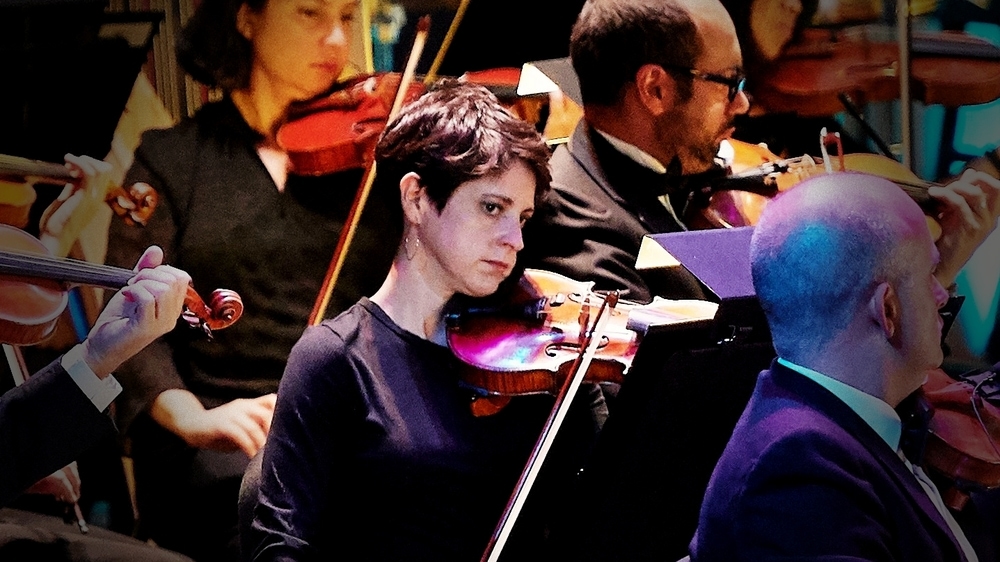
By Violinist Jenny Topilow
As an orchestral player and violinist, like all musicians, I have a long list of compositions that I turn to time and time again for emotional and aesthetic fulfillment on a personal level; works that are particularly beautiful and/or satisfying to me. These pieces include the late Beethoven Quartets, Stravinsky's "Petrushka," Prokofiev's "Romeo and Juliet," Shostakovich Symphony No. 10, the Bartok Quartets, Debussy's "La Mer," Caroline Shaw's "Partita for Eight Voices," and Andy Akiho's "21," to name a few.
It's funny to think, however, that the most memorable and important moments that I have had as a member of the Charlotte Symphony really have nothing to do with my list of favorite works. The most poignant experiences of my tenure as a musician are exactly that, experiences; experiences that have deeply moved me, changed my perception, taught me, connected me to those around me, and have brought me closer to my community.
Major side note: I'm not a huge fan of the term "classical music" as I feel that "classical" is simply a descriptor of a specific era in Western music (i.e. Mozart, Beethoven, and Brahms). I would never discount the absolute brilliance of those composers, yet the breadth of what is coined as "classical music" encompasses so much more than what the antiquated term has to offer. Maybe "orchestral music" and "art music," etc., could serve our purposes better.
But, I digress, because even if I personally believe it's outdated, I still call myself a "classical musician," since the label itself is the most recognized tag for what I do -- interpret and play music written by other people. In that sense, we are more like actors; we are not creators, we are not artists (in my opinion), but we have devoted ourselves to creators and artists. So at its core, even though it is vast, every orchestra on the planet plays music from a finite pool of works. That being said, what I have learned is that it is not the music (alone) that makes an orchestra, but the community that it is part of. The Charlotte Symphony belongs to all of Charlotte; every member of the community should feel ownership of the organization and all arts organizations throughout the city. It's this sense of ownership that builds commitment, connection, and those beautiful, profound experiences through music that are transcendent, beyond the notes on the page. All art for all people.
It would be remiss of me to not give personal examples of music plus circumstance making for meaningful experience. Here are two:
- The CSO accompanied the Morehouse College Glee Club in a performance of Atlanta based composer Joel Thompson's "Seven Last Words of the Unarmed," a work that uses the liturgical format of Haydn's "Seven Last Words of Christ" to honor and humanize black men unjustly murdered, namely Michael Brown, Trayvon Martin, Oscar Grant, Eric Garner, Kenneth Chamberlain, Amadou Diallo, and John Crawford. It is a sobering piece that reminds us of how powerful art can be when inspired by, and dedicated to, relevant and pertinent issues. The experience of the performance connected everyone in the room through a shared understanding of the necessity of the message and the emotion of that message being delivered through song by those directly affected by the theme of the work.
- Last season the CSO started a series called CSO Off the Rails, where smaller ensembles curate programs to be played at Snug Harbor, a local club/bar/music venue and Charlotte staple. Essentially standing room only with a small stage about three feet off the ground, these shows are really an immersive and interactive experience, bringing what we do to an audience that wouldn't necessarily seek out music at a concert hall. The success of the series, the energy surrounding it, and the electric atmosphere in the room during performances has solidified in my mind that "classical music" is completely accessible to everyone when we remove the formality and actively engage with the community.
Playing for the Panthers
December 15, 2020We got a kick out of opening this Sunday's Carolina Panthers game with a rousing rendition of The National Anthem. The game may have been a loss for the Panthers, but it was a win for Byron Johns (French horn), Alex Wilborn, Jonathan Kaplan (trumpet), Thomas Burge (trombone), and Scott Hartman (bass trombone), who didn't fumble a single note. Go team!
The path to playing professionally, by CSO Violist Viara Stefanova
November 30, 2020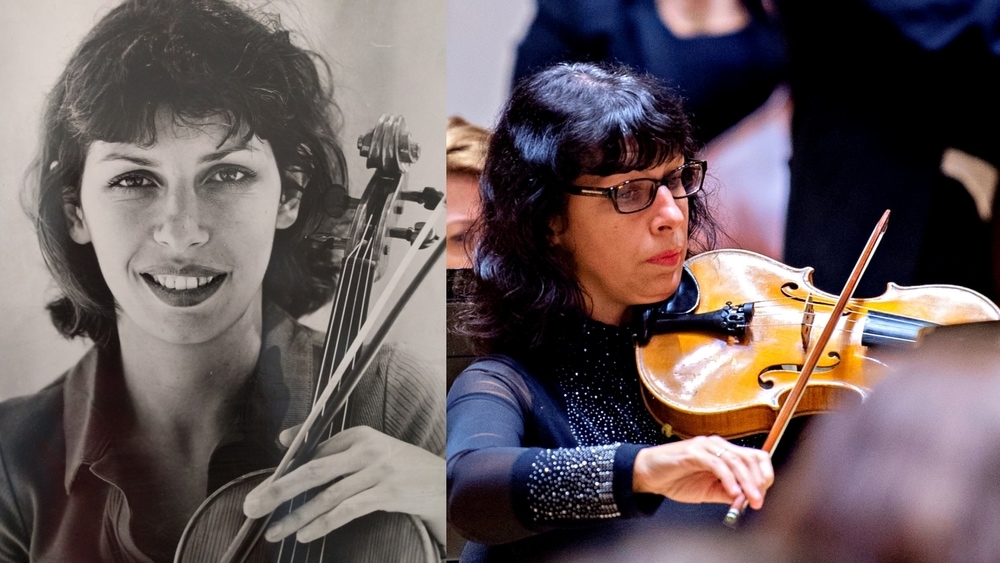
Making music isn't like listening to music. It isn't like anything else in life. It is something very special for all musicians. It's our life, our call, and our love. Experiencing the power of playing on stage is unlike any other experience or feeling. There is so much meaning in the melodies and harmonies we play; it's a world of constant discoveries of the human's state of mind, heart, and soul. Once we've been on stage, we can never forget it, and we keep doing it no matter how many challenges we might face.
It all starts in our childhood. At first we're curious and excited about the instrument we pick. We learn a couple of songs and then some harder songs, and it's all good and still exciting. Later on, when we are ready to play not just songs, but some classical repertoire, the real challenge appears. Sometimes practicing seems tedious, tiring, and frustrating. Many times it felt like we would never get it right, no matter how hard we tried. Day after day, after hours of practicing, we would find out how much perseverance, patience, and determination we would need to achieve a higher level of understanding and perform the music we love. The more we played though, the more difficult it got and the more we knew that our love for music would take us to an unimaginable beauty. Before we learned any piece of music, we would have to study the different styles, forms, and structure of the music.
Once we were in college we continued to learn how to practice efficiently and wisely; what to do to avoid the sore muscles and physical pains from over practicing. We would continue with even more patience and would keep pressing on, since the professional auditions are tough. We had to compete with hundreds of fellow musicians for one spot in the orchestra. We had to stay healthy emotionally after we failed an audition and learn how to deal with it.
The more challenging it got, the more fascinated we were, and the better we understood the incredible genius of the composers. Every chord, every harmony is there for a purpose. The complicated works by composers like Brahms, Mahler, or Tchaikovsky are difficult not only technically but also musically. A performer needs to be experienced and mature to understand the music and perform it the way it's meant to be performed. The simple melodies of the classical composers like Mozart or Beethoven are even harder to perform because it takes a world to achieve the lightness and simplicity of their music. Every note is so exposed, every slip of the finger can be heard. It all takes a practice-until-perfection approach. And even though we can't be perfect, we continuously aim for it. There is no other way to play an exceptional work of art."The more we played though, the more difficult it got and the more we knew that our love for music would take us to an unimaginable beauty."
So, we do whatever it takes to bring to life the amazing music that influences people's lives; because we understand what a great privilege it is to perform works written by some of the most extraordinary minds born on this earth. Read more
Celebrating the Power of Women in Art
November 24, 2020The artistic collaboration features Charlotte Symphony violinist Jenny Topilow, violist Alaina Rea, cellist Sarah Markle, and harpist Andrea Mumm Trammell performing works by Arvo Pärt and Caroline Shaw in front of Summer Wheat's contemporary work of art in the Mint's Robert Haywood Morrison Atrium.
We welcome you to experience the power of women in art presented at the intersection of art, architecture, and music.
This special presentation is brought to you by Wells Fargo, The Private Bank.
Clarinetist Allan Rosenfeld’s Top 10 Orchestral Clarinet Solos
November 19, 2020
By CSO Clarinetist Allan Rosenfeld
As a 34-year veteran of the CSO, I am often asked what music I particularly like. With that in mind, I've devised a list of my top ten favorite orchestral clarinet solos. Come listen to the orchestra in our performances and you will hear many more examples of great musical passages featuring the clarinet!
10) Respighi: Pines of Rome (end of Pines of the Janiculum)
Respighi effectively highlights the tremendous ppp (pianississimo, or "very very quiet") capabilities of the instrument. As the clarinet sound floats away, a recording of a nightingale can be faintly heard.
9) Tchaikovsky: Francesca da Rimini
I love Tchaikovsky for his truly memorable melodies. This one especially shows off the expressive qualities of the instrument.
8) Brahms: Symphony No. 3 (opening of second movement)
Gorgeous! You can hear in this solo with woodwind chorale that Brahms had a particular fondness for the sound of the clarinet, and he knew just how to make it sing.
7) Puccini: Tosca (Act III, "E Lucevan le Stelle")
One of the greatest clarinet solos in opera literature, from one of the most readily recognizable Italian arias.
6) Gershwin: Rhapsody in Blue (beginning)
Anyone who has ever seen Woody Allen's film "Manhattan" knows there's no way I could leave this showstopper off the list.
5) Bartok: The Miraculous Mandarin Suite
There are three big clarinet solos spread throughout this suite. And they are big: erotic, wild, frenzied cadenzas with lots of notes!
4) Beethoven: Symphony No. 6 (middle of second movement)
The clarinet solo Beethoven wrote here really allows the sound of the instrument to soar above the orchestra.
3) Rimsky-Korsakoff: Cappriccio Espagnol
A dazzling display of clarinet bravura and technique.
2) Sibelius: Symphony No. 1 (beginning of first movement)
Another great lyrical solo for clarinet, especially showing off the instrument's ability to taper sound into nothingness.
1) Rachmaninoff: Symphony No. 2
This solo is one of the most romantic lyrical melodies ever written for the clarinet.
This solo and cadenza seem perfectly suited to the clarinet, full of gypsy character and technical pyrotechnics.
Read more
| Older Posts » |
Latest Posts
- MERGE: Symphonic x Electronic
- Heart of the Home Tour Returns
- Composer Spotlight: Nia Imani Franklin
- More Famous Than Mozart: Joseph Bologne, Chevalier de Saint-Georges
- Art in Motion: Rosalia Torres-Weiner Chosen to Design CSO Roadshow
- Announcing Kwamé Ryan as the Charlotte Symphony’s Next Music Director
- Photos: Charlotte Symphony Annual Gala and Concert
- Five Must-See Concerts of the 2023-24 Season
- 5 Pro Tips for the Best Summer Pops Experience
- A Preschool Performance Three Years in the Making







